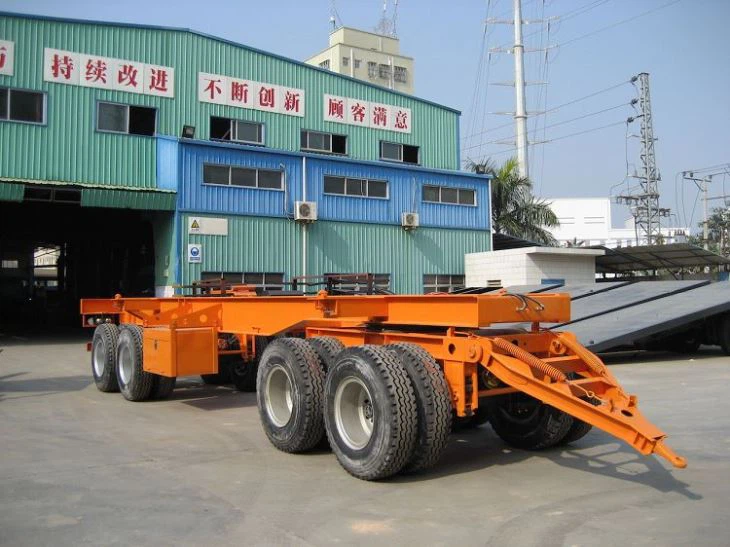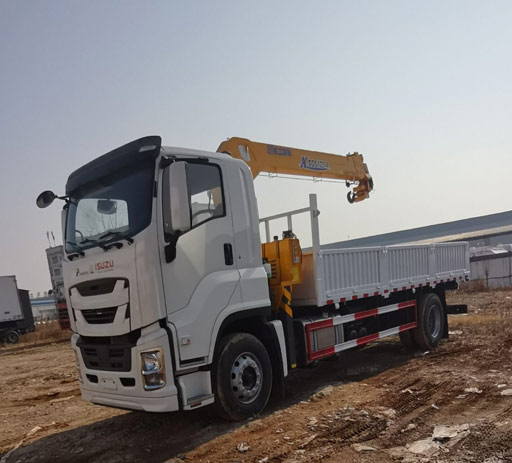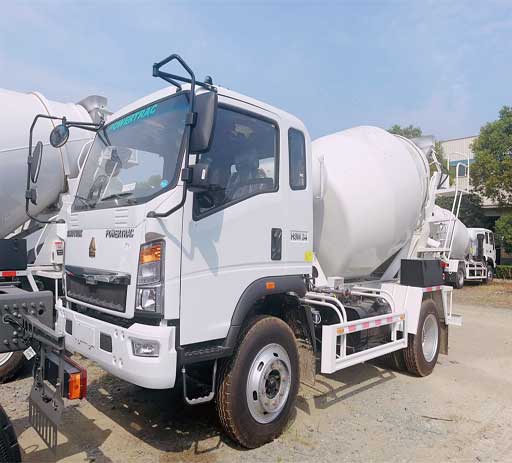Everything You Need to Know About Grappler Trucks

Introduction
The grappler truck represents a significant advance in waste management and transportation. With its specialized design, it optimizes the efficiency of loading heavy loads, particularly construction debris, trees, and scrap material. This article explores the different aspects of grappler trucks—from their mechanics and uses to benefits, maintenance, and common issues. Whether you’re in the waste management industry or just curious about this equipment, this comprehensive guide will provide you with everything you need to know.
What is a Grappler Truck?
A grappler truck is a specialized vehicle designed for lifting and transporting bulky materials. It features a hydraulic arm with a grapple attachment, which allows operators to pick up and move large items with ease. The functionality of grappler trucks makes them ideal for various industries, including construction, landscaping, and waste management.
How Grappler Trucks Work
The key component of a grappler truck is its hydraulic system. The hydraulic arm extends and retracts, allowing the grapple to pick up heavy loads. The operator controls the arm from within the cab, providing complete control over the picking, lifting, and loading processes.
Key Components of a Grappler Truck
- Chassis: The base of the truck that houses the engine and supports the load.
- Hydraulic System: Powers the grappling arm and allows for the smooth operation of the truck.
- Grapple Arm: The extendable arm designed to grab, hold, and lift objects.
- Grapple Attachment: The claw or hook designed to securely grip various materials.
Types of Grappler Trucks
Grappler trucks come in various types, each designed for specific applications. The most common types include:
1. Standard Grappler Trucks
These trucks are equipped with a standard grapple attachment and are versatile for several tasks such as picking up debris in construction sites.
2. Specialized Grappler Trucks
Some grappler trucks come with specialized attachments for specific tasks, such as tree removal or recycling. These trucks have enhanced capabilities to handle unique situations.
3. Mini Grappler Trucks
Mini grappler trucks are smaller in size and designed for urban environments. They are useful for residential projects where space is limited.
Benefits of Using Grappler Trucks
Grappler trucks offer numerous advantages that can streamline operations in various industries:

1. Increased Efficiency
The hydraulic systems in grappler trucks allow for quicker loading and unloading, significantly reducing labor time.
2. Enhanced Safety
With the capability to lift heavy loads without manual handling, grappler trucks minimize the risk of injury to workers.
3. Versatility
Grappler trucks can handle a wide range of materials, from construction debris to organic waste, making them ideal for many applications.
4. Cost-Effective

Although grappler trucks can be an investment, their efficiency can lead to long-term savings by reducing labor costs and time spent on tasks.
Choosing the Right Grappler Truck
Selecting the right grappler truck depends on various factors. Here are some practical tips:
1. Assess Your Needs
Identify the materials you will be handling and choose a truck that can accommodate those requirements.
2. Consider Size and Capacity
Ensure that the truck’s capacity aligns with the expected load size, and consider the maneuverability needed for your working environment.
3. Evaluate Hydraulic System Quality
The efficiency of the hydraulic system is crucial for the performance of a grappler truck. Choose vehicles known for their reliable hydraulic systems.
4. Brand Reputation
Research brands that are known for producing durable and efficient grappler trucks to ensure longevity and reliability.
Maintenance Tips for Grappler Trucks
To keep a grappler truck in optimal condition, regular maintenance is essential:
1. Regular Inspections
Inspect the hydraulic system, grapple, and the overall condition of the truck frequently to identify any potential issues early.
2. Fluid Checks
Check hydraulic fluid regularly and replace it as necessary to ensure smooth operation.
3. Greasing Moving Parts
Lubricate all moving parts to prevent wear and tear that could lead to more significant issues down the line.
4. Follow Manufacturer’s Guidelines

Each truck may have specific maintenance requirements, so adhere to the manufacturer’s guidelines for optimal performance.
Common Issues with Grappler Trucks
Like any machinery, grappler trucks can encounter operational problems. Here are some common issues:
1. Hydraulic System Failures
Problems in the hydraulic system can impair the effectiveness of the truck. Regular maintenance can often prevent these issues.
2. Wear on the Grapple
With heavy use, the grapple can wear out or become damaged, necessitating replacement or repair.
3. Engine Problems
Regular engine checks are vital, as performance issues can affect operational efficiency.
Grappler Truck Safety Practices
Ensuring safety while operating grappler trucks is vital:
1. Proper Training
Operators should be thoroughly trained to use grappler trucks effectively and safely.
2. Personal Protective Equipment (PPE)
Ensure that all operators and workers wear appropriate PPE to protect against potential hazards.
3. Site Safety Checks
Always conduct pre-operation safety assessments of the worksite to identify any hazards.
Cost Considerations for Grappler Trucks
The cost of a grappler truck can vary significantly based on several factors:
1. New vs. Used
New grappler trucks come with a higher price tag, while used trucks may be more affordable but may require additional maintenance.
2. Size and Capacity
Larger trucks or those with higher capacities will typically cost more.
3. Specialized Features
Trucks with specialized attachments or advanced hydraulic systems can also increase the overall price.
FAQs
1. What materials can a grappler truck handle?
A grappler truck can handle various materials, including construction debris, trees, scrap materials, and more.
2. How do I know if my grappler truck needs maintenance?
Regular observations of the truck’s performance, unusual noises, or decreased efficiency can indicate the need for maintenance.
3. Can grappler trucks be used in residential areas?
Yes, mini grappler trucks are designed for residential applications, making them suitable for use in urban areas.
4. What should I look for in a grappler truck?
Consider the truck’s capacity, hydraulic system quality, brand reputation, and specific features based on your needs.
5. Are grappler trucks expensive to maintain?
While maintenance costs can vary depending on usage and condition, regular servicing can help mitigate costly repairs.
6. How long does a grappler truck last?
With proper maintenance, grappler trucks can last several years, often exceeding a decade of reliable service.
